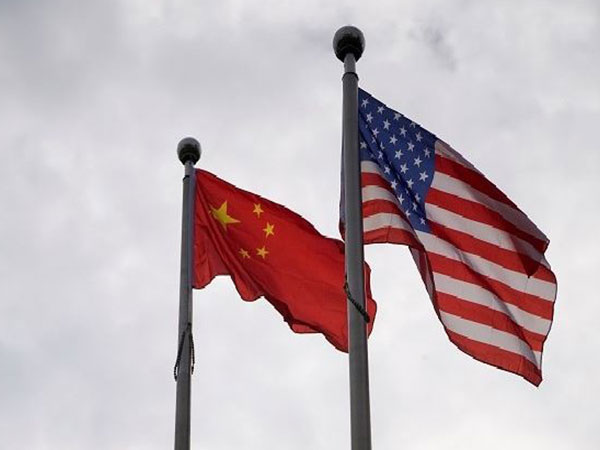Buddha Dhamma's compassion, kindness and co-existence should guide future leadership: Kiren Rijiju
Sep 14, 2024

Mumbai (Maharashtra) [India], September 14 : The Minister of Minority Affairs, Kiren Rijiju, observed on Saturday that the path for disseminating of Buddha's 'Madhyama Marg' as a guide for global leadership should start from Maharashtra, highlighting how Babasaheb Ambedkar's embrace of Buddha Dhamma had marked a new awakening in India after a long period of stagnation.
He made these observations when underlining the significance of holding the one-day conclave on "Buddha's Middle Path (Madhyama Marg), a Guide for Future Global Leadership' conclave in Maharashtra, given its large Buddhist population.
Speaking as the Chief Guest at the Ministry of Minority Affairs, Government of India and the International Buddhist Confederation (IBC) jointly organised event, he added that after Ashoka, Kanishka and Guru Padmasambhava, there was a long gap in the course of Buddhism's journey and only after Babasaheb's decision to embrace the Buddhist faith, India witnessed a new awakening.
The Special Guest at the event was Iqbal Singh Lalpura, Chairman, National Commission for Minorities and Milind Kamble, Chairman, Dalit Indian Chambers of Commerce and Industry (DICCI) was the Guest of Honour. Dr. Bhadant Rahul Bodhi shared the stage as the eminent dignitary during the inaugural session.
Kiren Rijiju noted that since 2014, the Government of India, under Prime Minister Modi's leadership, has been observing Buddha Jayanti celebrations on a grand scale. Prime Minister Modi's vision for the 21st century as the "Asian Century" was to be guided by Buddha's principles.
He emphasized that the Prime Minister had consistently promoted Buddhist values at all international platforms including the UN during his presentations and meetings overseas.
"India's concept of global leadership as enunciated by the Prime Minister, will reflect Buddha Dhamma based on compassion, loving kindness and Co-existence, observing the Middle Path," he emphasized.
Rijiju reiterated the government's commitment to promoting Buddhist values and called on all to advance Buddhism for societal and global betterment. "The Government of India was committed to supporting Buddhist institutions in Maharashtra and across India," he said.
In his concluding remarks, he emphasised the duty of Indians to connect the world through Buddhism.
Secretary General IBC, Shartse Khensur Rinpoche Jangchup Choeden, highlighted that in a world marked by conflict and competition, only Buddha's message can inspire positive change. This transformation can occur only when Buddha's teachings are fully embraced in both letter and spirit.
The Secretary General IBC expressed hope that the conference would enable religious and political leaders worldwide to utilize Buddha's teachings to foster peace and prosperity.
He also extended gratitude to Prime Minister Modi for spreading Buddha's message globally and emphasized that India should take pride in its Buddhist heritage.
Iqbal Singh Lalpura, Chairman, National Commission for Minorities reminded the audience of Buddha Dhamma's historical spread beyond India's borders and highlighted Dr B.R. Ambedkar as India's social reformer following Buddha.
He noted that Dr Ambedkar's contributions, including fundamental rights, the right to education, and the right to religion, deeply influenced our constitutional provisions.
Iqbal Singh emphasized that India has historically been a place where minorities have thrived and urged the continuation of this tradition with Buddha's teachings.
Milind Kamble, Founder Chairman, Dalit India Chamber of Commerce and Industry, opened his address with Buddha's core philosophy: "Be your own light." He stressed that the Middle Path (Madhyam Marg) is crucial for our progress.
Reflecting on Dr. Ambedkar's commitment to peaceful methods of struggle, he connected this with Buddha's Middle Path and concluded by underscoring that Eastern values driven by Buddha Dhamma have contributed to the region's peace and political stability compared to the west.
A short film was shown depicting the Government of India's efforts to promote Buddha Dhamma both nationally and internationally.


















